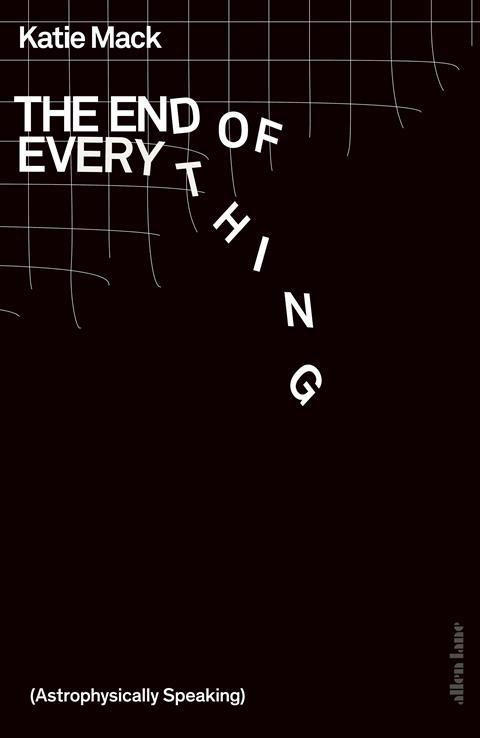Katie Mack
Allen Lane
2020 | 240pp | £20
ISBN 9780241372333

It can be difficult – impossible even – to truly comprehend the sheer scale of the cosmos. It is so vast and ancient that trying to imagine the science holding it all together can be overwhelming to our tiny human minds, and contemplating its eventual conclusion is yet more mind-boggling still.
Such is the task faced by Katie Mack’s The End of Everything. The book sets out to explain how the universe became, and the various ideas we currently have of how it might one day, someday, come to its end. For each of the five universe-ending scenarios, Mack explains what it would entail, why we think it’s a possibility and how we obtained the data that led us to that conclusion. All of this is simplified down to a level that is at least somewhat more accessible to the average reader than the quantum mechanics and general relativity that are actually going on in the background.
As dark and depressing as the subject matter might seem, Mack sells it brilliantly. It’s always enjoyable to hear someone talk about something they’re passionate about, and it’s obvious on every page that Mack adores the field she works in. Even in places where her explanations become bogged down in dense calculations and theories, her enthusiasm for the science she’s discussing is front and centre, and it can be infectious regardless of your actual interest in the particular topic. Combined with Mack’s humour and the way the book talks directly to the reader, the overall impression is a very friendly, engaging experience that carries any sections that may be too in-depth for the casual reader.
Mack has also taken care to be extremely honest in her summary of the current science. In areas where our collective human understanding of the universe is insufficient, she takes the time to explain our best guesses, how we came to make them and why we can’t currently be sure what the actual solution is. For other topics where we have a better understanding of things, the book not only explains current theories, but also how we were able to figure them out. As a result, readers end up with a much clearer idea of the principles being discussed and how they can start to fit into the wider picture.
That being said, this isn’t a book I would recommend to anyone who doesn’t already have a grasp of general scientific principles. Mack does a fantastic job of explaining some very complex science in a way that is understandable to a non-cosmologist, but to do so she largely skips past explaining more basic concepts like atomic structure, excited states and the four fundamental forces of nature.
Beyond that, if you enjoy contemplating your own insignificance in the face of an uncaring universe or, perhaps, marvelling at the sheer power of the cosmos, this is definitely worth a read.
This book features in our book club podcast, which you can listen to here.












No comments yet